News & Events
2022 News
The origin of the name of the Ayoreo people.
The origin of the name of the Ayoreo Indigenous people (Bolivia/Paraguay) was a matter of debate among scholars. Dr. Luca Ciucci (LCRC) solved the mystery after having found an old manuscript containing the names of the Indigenous groups of the region in the 18th century. He also found the real name of the first group who centuries ago spoke a documented language that is close to that of the Ayoreo.
A summary of the study is here: https://www.cairnsinstitute.jcu.edu.au/what-s-in-a-name-unearthing-the-origin-of-the-ethnonym-ayoreo/
The original publication (above) appeared in the Journal de la Societé des Américanistes https://journals.openedition.org/jsa/19809
Zamucoan ethnonymy in the 18th century and the etymology of Ayoreo
This study presents new data on Zamucoan ethnonymy and solves an etymological problem concerning the term Ayoreo. The earliest documented Zamucoan language is Old Zamuco, spoken in the 18th century in the Jesuit missions of Chiquitos and close to present-day Ayoreo. The morphology and meaning of ethnonyms used by Zamucoan peoples in the 18th century are analysed.
Dr Nathan M. White has recently had a paper accepted in the journal Language Resources and Evaluation entitled “The Hmong Medical Corpus: A Biomedical Corpus for a Minority Language”.
The Hmong Medical Corpus is a gold-standard biomedical corpus of the Hmong language developed through natural language processing and machine learning following an approach that can be generalised for low-resource and minority languages. An outcome of Dr White’s PhD research, the Hmong Medical Corpus can be accessed here: http://www.hmong-medical-corpus.org/. The recently accepted paper presents the corpus to the general research community and provides the technical details regarding the development of the corpus.
Access the paper (The Hmong Medical Corpus: A Biomedical Corpus for a Minority Language) here
On 12 February 2022, Mario Arrien, adjunct at LCRC, gave a talk in Spanish on “The joy of the end of the world. The Chiquitano myth and Carnival” [La alegría del fin del mundo. Mito y Carnaval chiquitano] at Museum Beni Altillo in Santa Cruz de la Sierra, Bolivia. The talk is available online at: https://www.facebook.com/watch/live/?ref=watch_permalink&v=3203875996504050
On 14 February 2022, Mario Arrien was also interviewed on the history of Santa Cruz and on Chiquitano culture at Radio Oriental Fm 96 in Santa Cruz de la Sierra Bolivia. The interview is online: https://www.facebook.com/watch/live/?ref=watch_permalink&v=397157072215839
Discover the new and exciting Languages and Linguistics major in the Bachelor of Arts at JCU
Read more about this opportunity by selecting the ANNOUNCEMENTS section in the Menu or see below.
On December 11, 2021, the anthropologist Mario Arrien, adjunct at LCRC, held a talk on the architectural and urban heritage of Santa Cruz de la Sierra (Bolivia) at the Museum Beni Altillo (Museo de la Ciudad Altillo Beni) in Santa Cruz.
The recording of the talk is available online at the following link:
https://www.facebook.com/CulturaTurismoSCZ/videos/1268418173632081/
2021 News
On July 8, 2021, Mario Arrien, adjunct at LCRC, held a talk on Los sermones y los mitos: Ritual y diluvio universal en el carnaval chiquitano [Sermons and myths: Ritual and universal flood in the Chiquitano carnival] at II Congreso Internacional Patrimonio Religioso de Iberoamérica: Expresiones tangibles e intangibles (Siglos XVI – XXI), [II International Congress on Religious Heritage of Ibero-America: Tangible and Intangible Expressions (16th-21st Century)], Universidad Privada de Santa Cruz de la Sierra, Santa Cruz de la Sierra (Bolivia).
Link:
https://congresopatrimonio.upsa.edu.bo/
Pier Marco Bertinetto – has advised of the availability of the Special publication of the Italian Journal of Linguistics featuring materials from the joint 2018 Workshop. The publication features work by many of the LCRC members.
You can access a copy of the journal cover.
You will see that the special section starts on p.69.
Congratulations to the participants.
Two LCRC members held a talk at the 2nd Meeting on Oral Memory and Voices from America / II Encuentro Memoria Oral y Voces de América hosted at the Universidad Católica de la Santísima Concepcíon (Concepción, Chile).
Dr. Luca Ciucci, Postdoctoral Research Fellow at LCRC, held a talk on ‘Historical linguistics and oral memory / Lingüística histórica y memoria oral’.
Mario Arrien, Adjunct at LCRC, held a talk on ‘Intangible cultural heritage: the Chiquitano festivals’ ‘Patrimonio cultural inmaterial: las festividades chiquitanas’.
Link to the event:
http://cultura.ucsc.cl/calendario/ii-encuentro-memoria-oral-y-voces-de-america/
First day of the meeting (June 30), with talk by Luca Ciucci:
https://www.youtube.com/watch?v=q5HmLE9X3p4
Second day of the meeting (July 30), with talk by Mario Arrien:
https://www.youtube.com/watch?v=fmw9W9RGLUU&t=14s
See the following links (you can also download the documents):
Memoria Oral y Voces de América
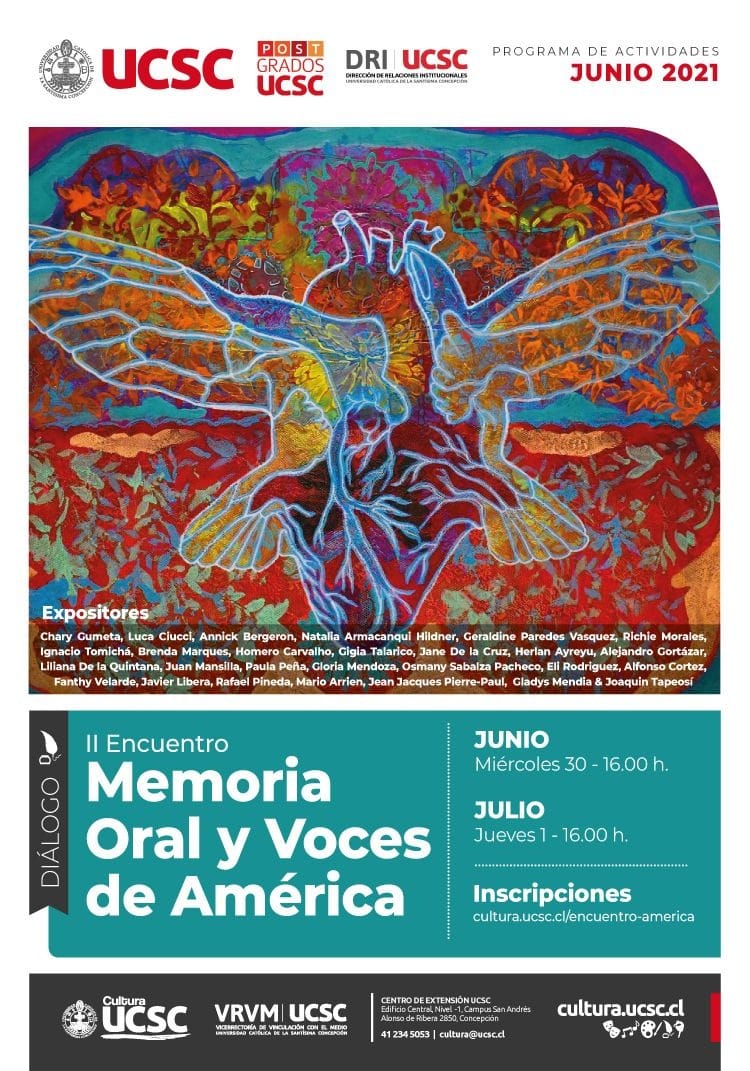
Chary Gumenta y Luca Ciucci
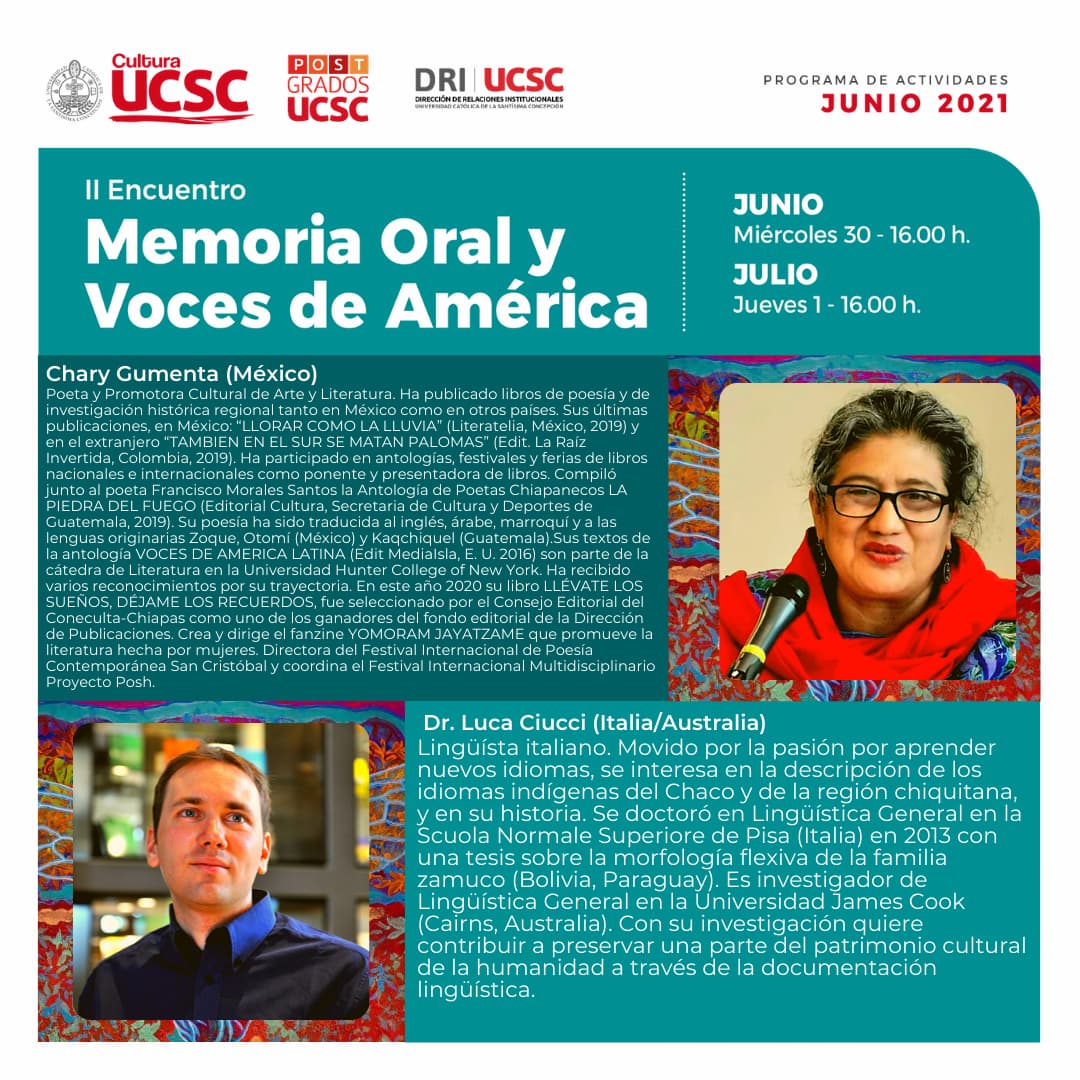
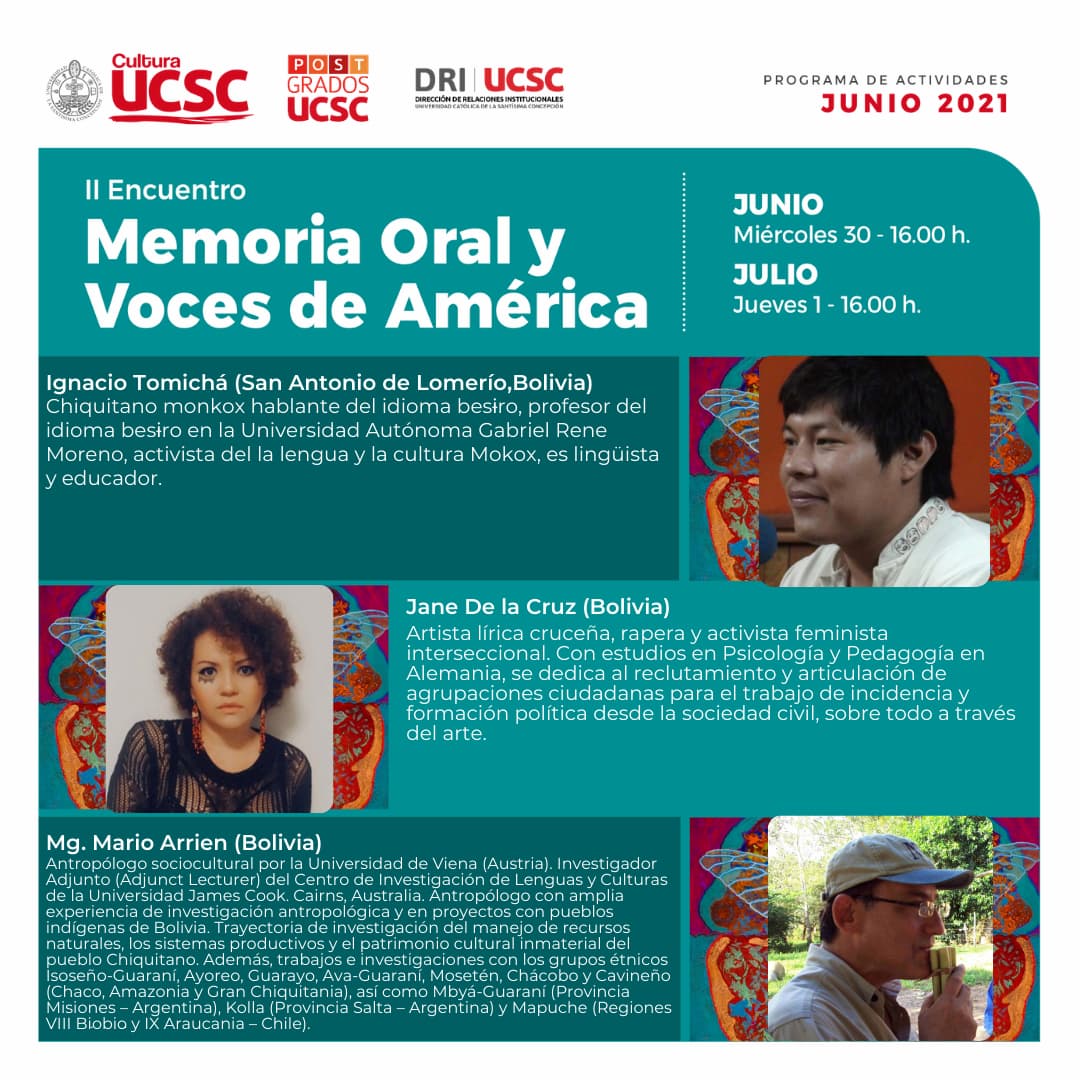
The Austronesian and Papuan Languages and Linguistics Research Group presented its thirteenth international conference – APLL13. It was hosted fully online by the University of Edinburgh on 10-12 June, 2021. Presenters at the conference included Robert Bradshaw, Dr René van den Berg, Dr Hannah Sarvasy and Dr Dineke Schokkin. The talks and posters are now available on YouTube and Twitter, where presenters have given permission to publicise them. View the APLL Conference abstracts of LCRC members.
The purpose of the APLL conferences is to provide a venue for presentation of the best current research on Austronesian and Papuan languages and linguistics, and to promote collaboration and research in this area. APLL13 follows a successful online instantiation of APLL, hosted by the University of Oslo, as well as previous APLL conferences held in Leiden, Surrey, Paris and London, and the Austronesian Languages and Linguistics (ALL) conferences held at SOAS and St Catherine's College, Oxford.
On the 9th of July 2021, Luca Ciucci presented an online talk for the 700 years of the death of Dante hosted by the Universidad Mayor de San Andrés (La Paz, Bolivia). The talk was in Spanish and the title of the talk was 'Reflexiones sobre el Sexto Canto del Paraíso' [Considerations on the Canto VI of Dante´s Heaven]. Watch the talk below or on Facebook.
Language and Culture Research Centre PhD candidate Rob Bradshaw has been involved with the Doromu-Koki speaking community since 2001. Doromu-Koki is an endangered Papuan language of Central Province, Papua New Guinea, nestled in the Owen Stanley ranges to the Southeast of the capital, Port Moresby. Read more about Rob’s involvement with this language in The Cairns Institute Newsletter ( page 10, April 2021 ed)
13-14 April 2021 (online): 13 y 14 de abril (en línea): 13 i 14 d’abril (en línia)
‘Verb and context’ is an international conference based at the University of Alicante, or Alacant, Valencia, Spain. The conference aims at exploring the impact of shared knowledge on verb categories. Shared knowledge is viewed in a wide sense, as a perspective that comes across different semantic and discursive categories –i.e. (external and internal) temporality, modality, evidentiality, (inter)subjectivity, and mirativity at the opposite side–, but it also allows us to approach certain issues related to information structure and even to the conception of meaning.
The conference includes numerous international speakers.
Luca Ciucci will give a talk on the topic of The interaction of grammar and society in Ayoreo (Bolivia, Paraguay) on the 9th of April at Coloquio de Investigación Lingüística 2021-1
Este evento tiene como principal propósito abrir un foro de discusión e intercambio de ideas entre estudiantes, egresados y profesores de este programa de posgrado, así como de otros invitados. Asimismo, se busca consolidar las relaciones interinstitucionales que se sostienen para fortalecer las LGAC del CA-USON-81, de la Maestría en Lingüística y de la red académica RICIDIL.
The main purpose of this event is to open a forum for discussion and exchange of ideas among students, graduates and professors of this graduate program, as well as other guests. Likewise, it seeks to consolidate the inter-institutional relationships that are maintained to strengthen the LGACs of CA-USON-81, the Master's in Linguistics and the RICIDIL academic network.
Robbins Burling was a great scholar (everyone, including JCU students who did Anthropological linguistics at JCU, know his books!). And his contribution to the Tibeto-Burman field was outstanding. Robbins passed away peacefully on January 2, 2021. Read Mark Post's obituary of him.
Date: Fri, 12 Feb 2021 08:34:27
From: Mark Post [mark.post@sydney.edu.au]
Subject: Prof. Em. Robbins Burling, 1926-2021
Robbins Burling, Professor Emeritus of Anthropology and Linguistics at the University of Michigan, passed away peacefully on January 2, 2021, at the age of 94. A giant in the fields of anthropological linguistics, language evolution and language pedagogy, Burling was particularly known for his pioneering work in ethnography and linguistics of north eastern India, where he conducted his doctoral fieldwork and to where he returned for research visits until the latter years of his life. Burling’s work has played a seminal role in the development of Trans-Himalayan (Tibeto-Burman) linguistics, inspiring generations of scholars and producing some of the field’s formative works.
Rob’s early career saw the publication of several groundbreaking works in linguistics and anthropology, including A Garo Grammar (1961) – the first modern grammar of a northeast Indian language – a reconstruction of Proto-Bodo (in Language, 1959) – the first reconstruction of a Trans-Himalayan language at the subgroup level – a pioneering study of early child language acquisition in a minority language setting (in Word, 1959), an ethnographic monograph Rengsanggri: Family and Kinship in a Garo Village (1963), a popular textbook Hill Farms and Padi Fields: Life in Mainland Southeast Asia (1965, re-issued in 1992), and an influential reconstruction of Proto-Lolo-Burmese in 1967. Over the following five decades, Burling published more than 130 articles, chapters and reviews across the fields of social and cultural anthropology, descriptive and historical linguistics, language pedagogy and linguistic theory. In many of these works, he engaged in some of the major debates of his era, especially regarding the nature and origin of human language.
Throughout his career, Rob Burling’s work was marked by scholarly excellence, a solid empirical grounding in first-hand field data, and uncompromising methodological rigor. Yet all who knew Rob could not fail to also be impressed by the love he felt for the northeast Indian region, its people, and their languages, and this sense of love and joyful intimacy pervaded his work. His lifelong fascination with the Garo language culminated with a 2004 three-volume study The Language of the Modhupur Mandi (Garo), which uniquely presented a modern, comprehensive analysis of Garo grammar and lexicon in a highly accessible prose style. His fascination with language evolution culminated around the same time in a popular volume The Talking Ape: How Language Evolved (2005). And Rob’s skill as a teacher is nowhere better epitomized than by his 1992 introductory linguistics textbook Patterns of Language.
After retirement, Rob continued to travel and write (he made it to all seven continents). In 2016, he was honoured with a Festschrift on the occasion of his 90th birthday at the 8th International conference of the North East Indian Linguistics Society (NEILS) – a conference Rob had attended faithfully since its inception in 2005. That same year he published a treatise on spelling, Spellbound, written from his lifetime perspective of being both a passionate and prolific writer, and yet a terrible speller.
Rob will be deeply missed by his family and friends around the world and across all walks of life, by the many students that he mentored, and by his many colleagues around the world.
Further reading: Language and Culture in Northeast India and Beyond: In Honor of Robbins Burling (available for free download at http://hdl.handle.net/1885/38458) contains an Introduction which provides more information about Rob Burling’s life and work, as well as a chapter by James A. Matisoff which offers a detailed critical assessment of several of Rob’s contributions to Trans-Himalayan linguistics from a specialist’s perspective. It also contains several photographs, and a comprehensive bibliography of Burling’s work up to 2015.
Linguistic Field(s): Anthropological Linguistics
Historical Linguistics
Language Documentation
Subject Language(s): Bodo (boy)
Garo (grt)
Language Family(ies): Tibeto-Burman
21 February 2021 will be the ‘Mother language Day' – See the article written by Bianca de Loryn (JCU College of Arts, Society and Education) about its importance. The article also provides and insight into Prof. Sasha Aikhenvald's background.
Clause chains are a special type of complex sentence, found in hundreds of languages outside Western Europe, in which clauses are dependent but not embedded, and dozens of clauses can be combined into a single morphologically-indicated syntactic unit. Clause chains in some languages contain a further special feature: switch-reference marking, in which speakers must announce in advance whether the subject of the following clause will differ from that of the current clause. A comprehensive typological study of clause chains across languages is underway; I report a few known parameters of variation.
Comparison of child clause chain productions in six languages (Japanese, Korean, Turkish, Ku Waru, Nungon, and Pitjantjatjara) yields a major finding for child language research: children seem to universally go through a two-clause production phase first. These studies also have ramifications for typology more broadly, however: i) children learning at least one clause chaining language, Nungon (Papuan), have special distributions of complex sentence types, and ii) production of switch-reference marking depends on the distribution in the ambient language, which varies greatly across languages.
Psycholinguistic work has not targeted clause chains, but they would seem specially suited to exploration of long-distance associations, working memory, and planning scope. I show preliminary results from eye-tracking and EEG studies of switch-reference marking in Nungon clause chains.
The presentation can be viewed at Abralin ao Vivo website.
The anthropologist and LCRC Adjunct Research Fellow Mario Arrien was the invited expert in the television program Sociedad Abierta [Open Society], presented by the journalist Enrique Fernández. The topic of the program was the concept of ‘Culture’. The program was filmed in Santa Cruz de la Sierra (Bolivia) and broadcasted on the Bolivian channel SNTV on March 18, 2020 at 22:30. Watch the interview below.
Interview with Luca Ciucci (LCRC), José Chuvé, Brittany Hausen, Andrey Nikulin and Claudia Vaca, organizers of the conference Bobikíxh - I Encuentro de lenguas originarias de la región chiquitana [First meeting on the languages of the Chiquitania region] in the program Voces Indígenas Urbanas, Radio Santa Cruz 92.2. November 14, 2020.
Unserdeutsch (ISO 639-3 language code: uln) is an endangered creole language in the South Pacific, nowadays spoken mainly in Australia and to a small extent also in Papua New Guinea. It represents the only documented case of a German-lexified creole among the numerous creole languages of the world. Further information from Péter Maitz about the Unserdeutch Project read the article on the Institute of Germanic Languages and Literatures website.
Previous News (2019 / 2020)
From Pema Wangdi (Linguistics PhD candidate at JCU, Language and Culture Research Centre) - who tells us more about growing up in a country with some of the tallest mountains in the world, how people used to find love and why prayer flags matter during . See this article "Bhutan: Preserving the languages of the mountains" written by Bianca de Loryn, College of Arts, Society and Education, JCU
Dr. Luca Ciucci paid a posthumous tribute to Professor Gabriella Erica Pia at the beginning of the second day of the International Virtual Congress of Rock Art “Roboré, the Story of History”. Professor Gabriella Erica Pia was a pioneer of anthropological and archaeological studies in Bolivia (and in other Latin American countries).
El Dr. Luca Ciucci hizo un homenaje póstumo a la Profesora Gabriella Erica Pia al comienzo del segundo día del Congreso Virtual Internacional de Arte Rupestre “Roboré, el Relato de la Historia”. La Profesora Gabriella Erica Pia fue una pionera de los estudios antropológicos y arqueológicos en Bolivia (y en otros países de Latinoamérica).
Luca Ciucci interview by Voces Indígenas Urbanas on Radio Santa Cruz 92.2 about the online conference we are organizing (Bobikíxh - I Encuentro de lenguas originarias de la región chiquitana). Watch Voces Indigenas Urbanas on Facebook
Ana Suelly Arruda Câmara Cabral, from the National University of Brasília, just sent this piece.
It talks about Tapi, a Yawalapiti (Arawak) man from Xingu who is about to defend his MA (with Ana Suelly as the supervisor, and myself as a member of the examining committee).
‘There are no words’: As coronavirus kills Indigenous elders, endangered languages face extinction. An article by Terrence McCoy and Heloísa Traiano in the Washington Post Oct.7 2020
"RIO DE JANEIRO — The old man knew he was dying. The disease he'd been warning of for weeks had taken hold, and it wouldn't be long now. He looked to his son, who would soon be the leader of what remained of their people.
The old man was fluent in five languages, but the one he chose to speak now was one that virtually no one else in the world could understand.
Dear Unserdeutsch family! I have very good news to report. It looks like Germany just cannot get enough of you. Even after five years of unserdeutsching and despite all the interviews and reports of the past years, your community and your language continue to fascinate people in Europe. Last Sunday, the Frankfurter Allgemeine, one of the leading high-profile national newspapers in Germany, published another long article on the „Unserdeutsch phenomenon“.
As always, Craig and me tried our best to make sure you will be happy with the outcome. But this time, as you will see, the biggest and most important support came from Kimbe, from someone most of you may not have seen for decades. Many thanks to him: Willy Schulze and, of course, to Fabian von Poser from the Frankfurter Allgemeine for the great job they did for the entire community.
For the online version of the article please click on the following link. The PDF print version can be accessed here.
Aufpasen bite, bleib ale gesund und safti und ni fergesen fi washen dein hende!
On-line Conference in La Paz with Dr Luca Ciucci (16:40 to 17:20 Bolivian hour 9-25-20) (06:40 to 07:20 Australia hour 9-26-20) "Seminario fonéticos-fonológicos y morfosintácticos de las lenguas originarias"
Aspectos fonéticos-fonológicos y morfosintácticos de las lenguas originarias
Seminario Virtual Internacional: Aspectos fonéticos-fonológicos y morfosintácticos de las lenguas originarias Fecha: 25 y 26 de Septiembre Hora: 16:00 Moderadores: M.Sc. Miriam Cayetano Dr. Mauro Constantino Inscripciones. Transmisión a través de.
International Virtual Seminar: Phonetic-phonological and morphosyntactic aspects of native languages Date: September 25 and 26 Time: 16:00 Moderators: M.Sc. Miriam Cayetano Dr. Mauro Constantino Registration Transmission through.
Texts in the Indigenous Languages of the Pacific (TILP) series is a supplement to Language and Linguistics in Melanesia. call for proposals
To: All staff
From: Professor Christine Bruce - Dean, Graduate Research
Approved by: Professor Christine Bruce
Date: 11 June 2020
The Medal for Excellence for a Higher Degree by Research (Doctoral or Masters) Thesis is awarded to a candidate whose higher degree by research (doctoral or masters) thesis was judged to be passed ‘cum laude’.
Nominations are made taking into account several criteria, including:
- The thesis is excellent in that it shows flair and originality beyond what would usually be expected for a Doctoral Research thesis.
- The thesis displays excellent capacity for independent research.
- The thesis presents an outstanding contribution to scholarship and a significant contribution to knowledge.
The award must be endorsed as eligible to receive the Medal for Excellence for a Higher Degree by Research (Doctoral or Masters) Thesis by the student’s Advisory Panel and the Dean, Graduate Research.
Recipients are invited to accept the Medal for Excellence at a Graduation Ceremony. Due to Covid-19 this has not yet been possible in 2020, which must be extremely disappointing to the recipients.
I would like to take this opportunity to formally acknowledge the following recipients and their advisory panels.
Congratulations!
Dr Junwei Bai - A Grammar of Munya
Advisory Panel: Professor Alexandra Aikhenvald, Professor Robert Dixon and Doctor Simon Overall
Dr Karen Cheer - Balancing it out: The process by which midwifery students provide care to women following stillbirth in Papua New Guinea
Advisory Panel: Professor Komla Tsey, Associate Professor David MacLaren and Doctor Jennifer Kelly
Dr Galiina Ellwood - A shared history forgotten: Aboriginal miners and prospectors of tropical Queensland, from pre-contact times - c.1970
Advisory Panel: Doctor Janice Wegner and Doctor Mike Woods
Dr Ann Kraeuter - Ketogenic diet as a potential novel treatment for schizophrenia in translational animal models
Advisory Panel: Professor Zoltan Sarnyai and Professor Alan Baxter
Dr Jing Li - No Signal Here: Self-Development and Optimal Experience from Digital-Free Tourism
Advisory Panel: Professor Phillip Pearce, Professor David Lowe and Doctor Tingzhen Chen
Dr Donald McKnight - Life finds a way: The recovery of frog populations from a chytridiomycosis outbreak
Advisory Panel: Professor Kyall Zenger, EMPRO Ross Alford, Professor Lin Schwarzkopf and Doctor Deborah Bower
Dr Ben Menadue - Science fictions, cultural facts. A Digital humanities approach to a popular literature
Advisory Panel: Professor Komla Tsey, Associate Professor Richard Lansdown, Doctor Susan Jacups and Doctor Kristi Giselsson
Dr Eleanor Wilkinson - More than the power of two: Leading school improvement in Indigenous education
Advisory Panel: Professor Brian Lewthwaite and Professor Suzanne McGinty
Dr Stephen Zozaya - Using pheromones to understand cryptic lizard diversity
Advisory Panel: Doctor Conrad Hosking and Doctor Megan Higgie
You are invited to join me for a lecture in the Abralin Linguists Online series on July 7, 2020 at 10 am BRT ( = -3 UTC), that is 13 hours GMT; 15 hours CET.
You can use the following text to spread the message about Linguists Online in your Social media networks:
Abralin ao Vivo - Linguists Online is an initiative of the Brazilian Linguistics Association (abralin.org) in cooperation with several linguistics associations.
It was designed to give students and researchers free access to state-of-the-art discussions on the most diverse topics related to the study of human language during this difficult quarantine period. For more information about , please visit: aovivo.abralin.org.
For updates on the event's programme, follow Abralin at instagram.com/abralin_oficial. All the lectures are also available on Abrali'n YouTube channel: youtube.com/abralin.
Best wishes
Felix
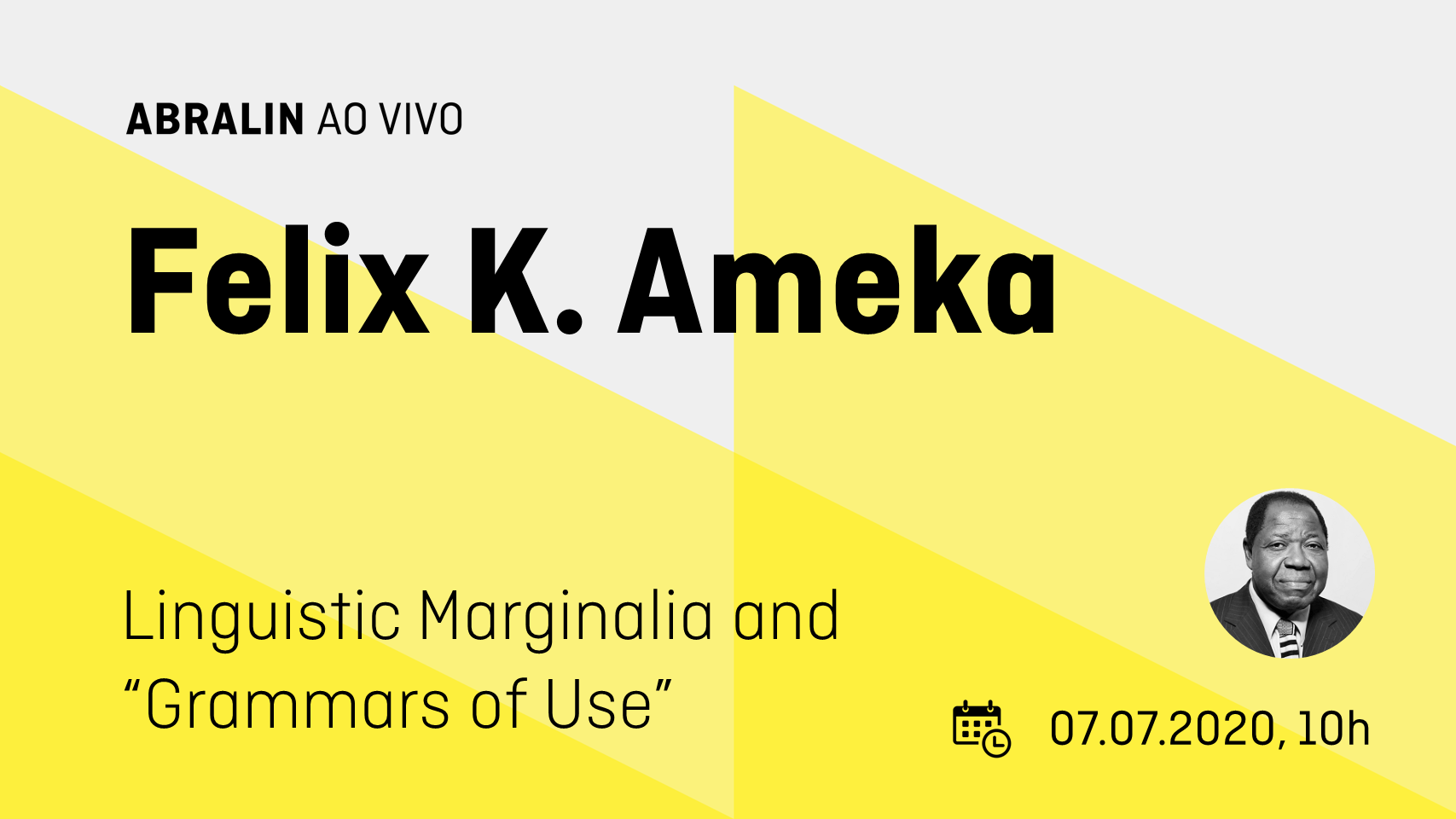
Robert Bradshaw's Book Review of "A Grammar of Nungon: A Papuan Language of Northeast New Guinea by Hannah S. Sarvasy"
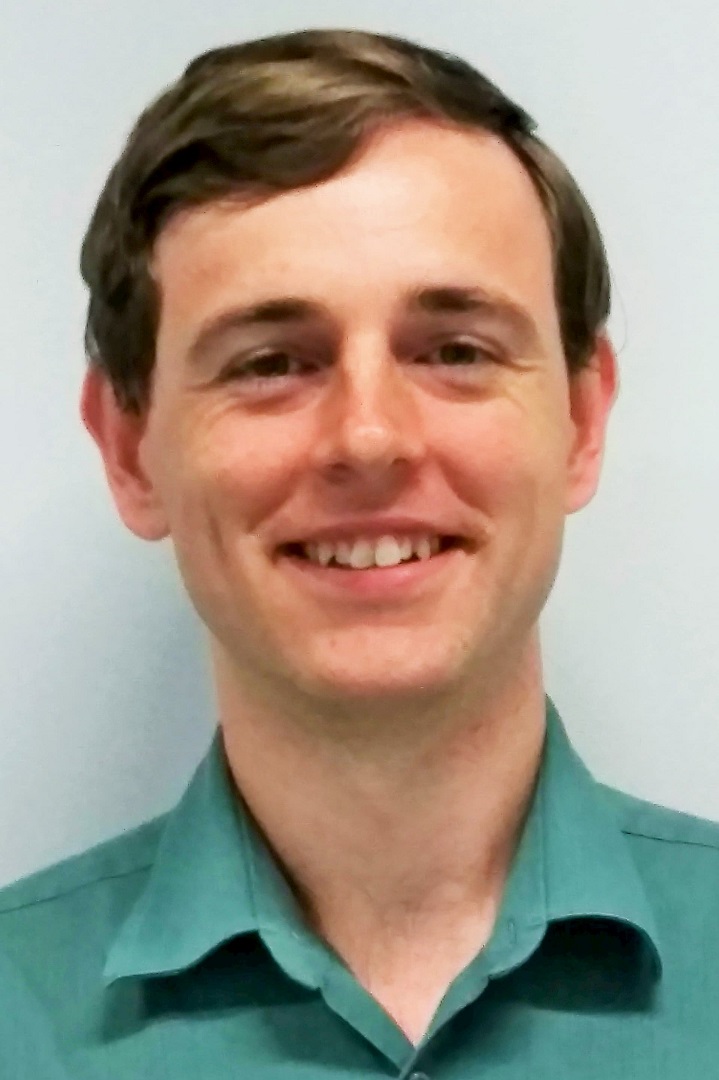
First Hmong grammar book and Hmong medical corpus (In English)
Subject: Book reviews in Language & Linguistics in Melanesia, a message on behalf of Professor Craig Volker
Dear Colleagues,
As Review Editor for Language & Linguistics in Melanesia, I'd like to invite reviews of recently published books that you have found useful or insightful.
Language & Linguistics in Melanesia is the online journal of the Linguistic Society of PNG (www.langlxmelanesia.com).
Besides being of interest to overseas researchers working in Melanesia, it is one of the first places PNG students of linguistics go for information. Your review of books you use will be valuable guidance for undergraduate students at PNG universities that lack good library resources. And, of course, a review is a relatively easy way for graduate students to add to their publication lists.
Books should have been published in the past two years. In many cases I can help get a review copy of a book. The book does not need to be specifically focused on Melanesia, but in your review, you should show how it is relevant for linguistics in Melanesia.
For more information, please see https://www.langlxmelanesia.com/book-reviews
Tenkyu tru,
Craig
LANGUAGE & LINGUISTICS IN MELANESIA - Book Reviews LLM invites review copies from publishers of recently released books on any subject related to the languages of Melanesia or the study of linguistics in our region. |
Craig Alan Volker
Adjunct Professor
Language and Culture Research Centre
The Cairns Institute
James Cook University, Australia
Firew Worku farewell lunch - photos
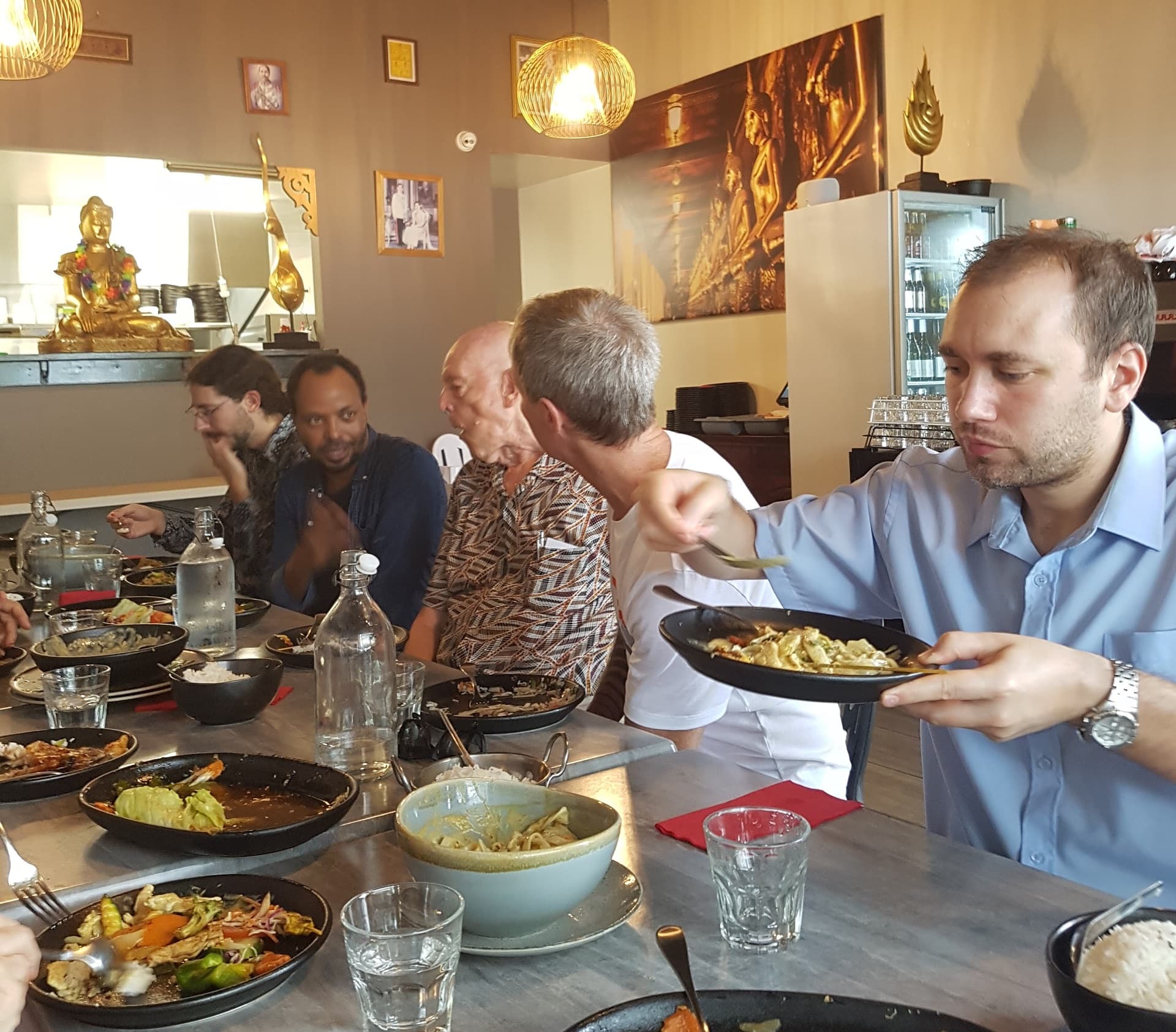
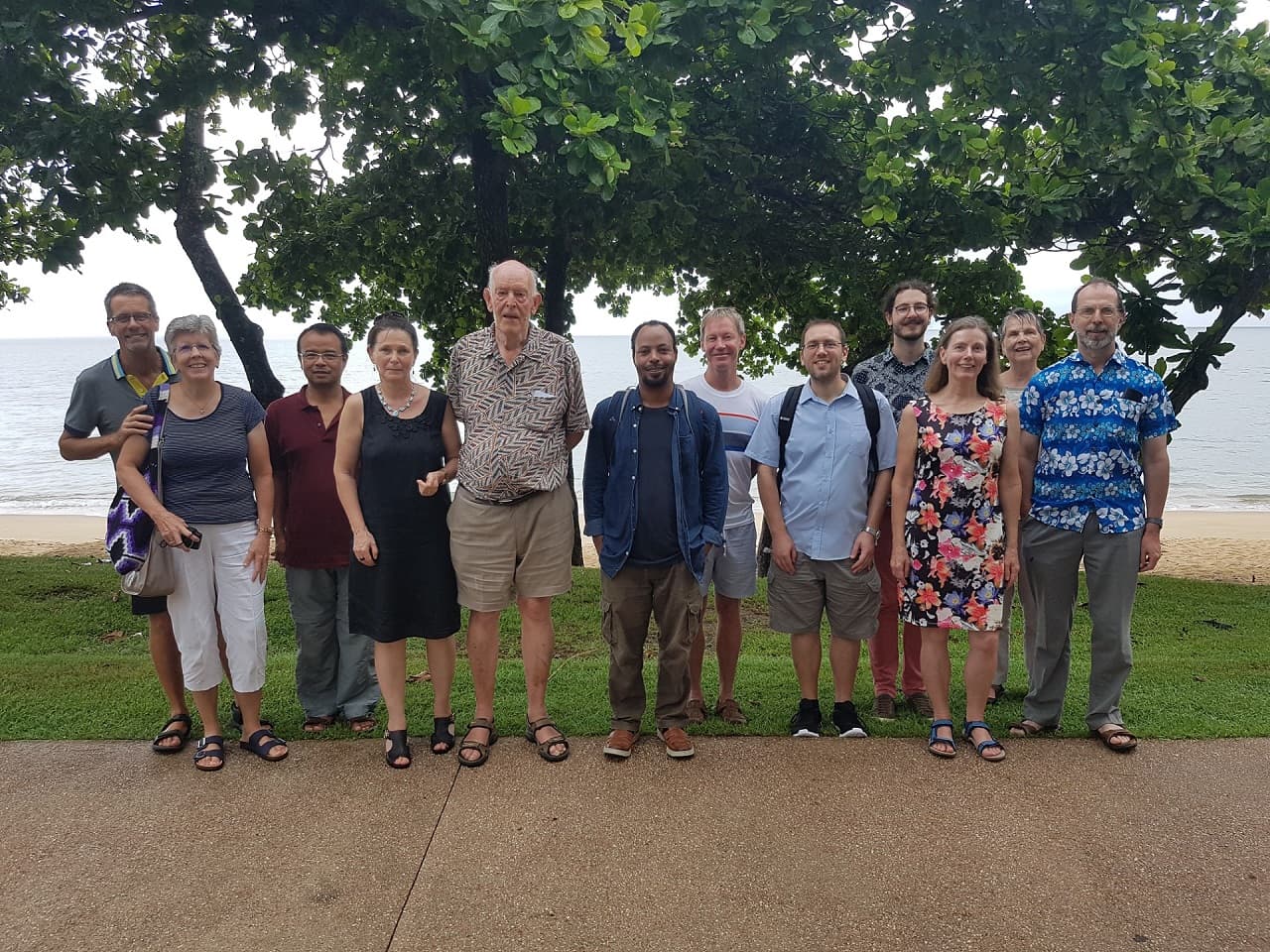
Junwei Bai (Abe) farewell lunch - photos
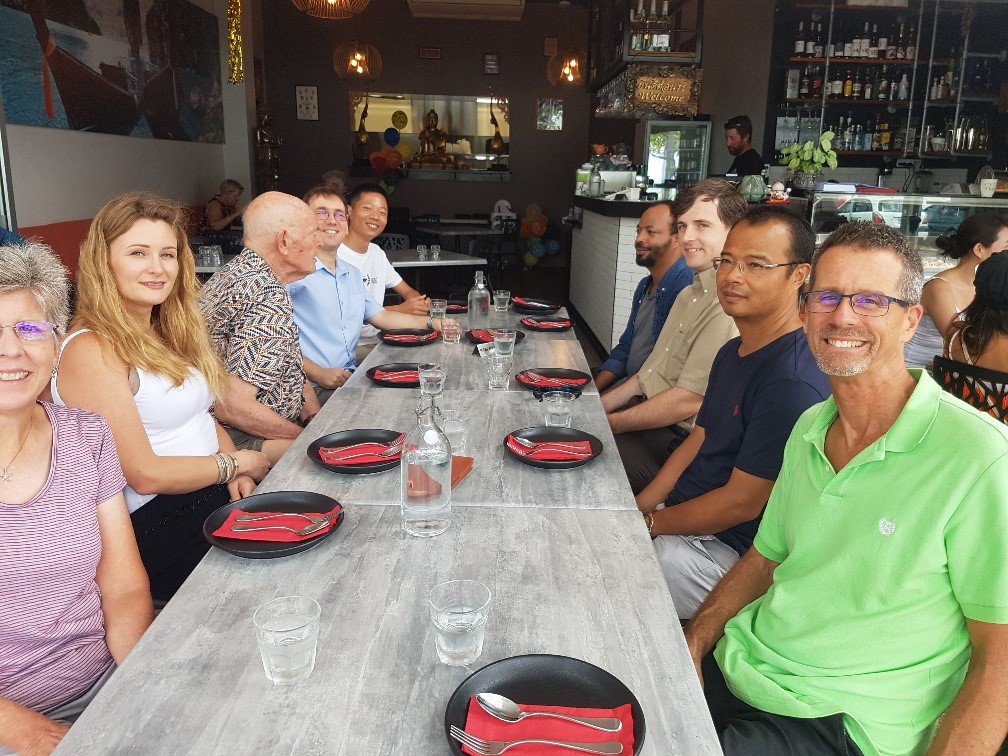
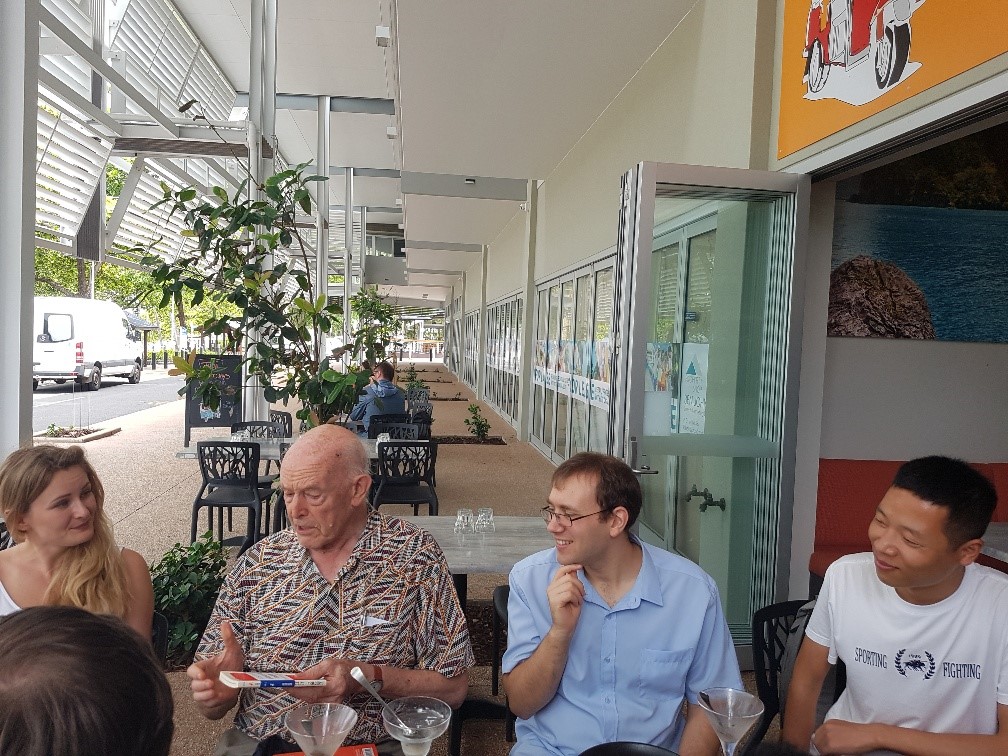
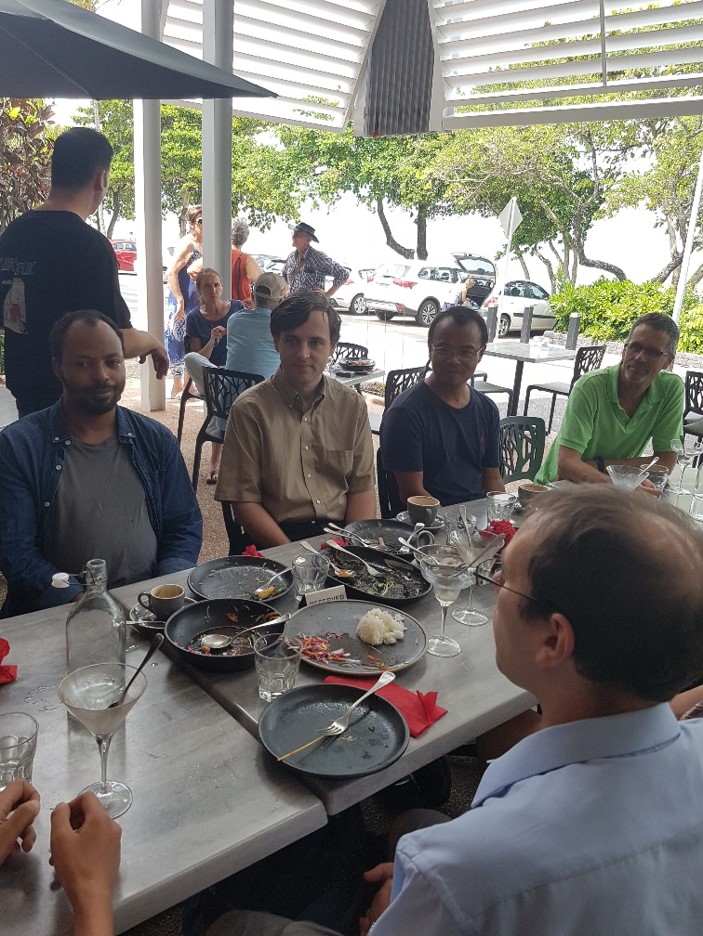

Photos from Santa Cruz de la Sierra and San Javierto (courtesy of Luca Ciucci)
Dear LCRCers
Luca Ciucci, who is now in Bolivia, has just sent me some updates.
He has just given a talk in La Paz which went very well. It has been put on the UNESCO site, within the International year of indigenous languages - see
They made a video and put it online. The video has over 1400 views, which is an unbelievable achievement.
Here is the video -
https://www.facebook.com/HumanidadesUMSA/videos/2193593904093801/
Well done!!!
Best wishes
Sasha
Prof Dr Maarten MOUS, (7 July to 24 August 2019)
Maarten Mous (PhD University of Leiden) is one of the leading experts in African linguistics, and African studies in general, with a focus on Cushitic languages, Bantu languages, language and identity, and also derivation and valency-changing devices. In his capacity as a Partner Investigator of the ARC DP 'The integration of language and society' (CIs Distinguished Professor Alexandra Aikhenvald, Professor R. M. W. Dixon and Dr Nerida Jarkey), he will spend July-August at LCRC working within the framework of the project professor of African linguistics Leiden University, member of the Netherlands Royal Member of Sciences and a Visiting Fellow at LCRC, has worked on Cushitic languages of East Africa (two grammars, a dictionary and a lexical reconstruction, overview articles) and Bantu languages (two grammars, numerous articles). Areas of interest include language contact, language and identity, verbal derivation, gender and number. He will bring unparalleled knowledge and expertise in Cushitic and Bantu languages, and their social structures, and the construction of language identity, working closely together with the members of the team on establishing correlations between societal structures and linguistic structures in the focal areas. Collaboration with Prof Dr Mous is essential for expanding studies of linguistic and social structures in PNG, Australia, and Amazonia in a wide perspective. During his stay, he will work on a number of papers, and prepare and present a paper at the International Workshop, “The Integration of Language in Society”
Prof Felix AMEKA (31 July to 31 August 2019)
Felix Ameka lectures in African Languages and Cultures at the Leiden University Centre for Linguistics and is an Associate Researcher, Language and Cognition Group at the Max Planck Institute for Psycholinguistics, Nijmegen. He is interested in language documentation and description, typology, cross-cultural semantics, pragmatics, the sociocultural, and cognitive motivations of grammar, anthropological and contact linguistics. His empirical specialisation is West African languages, mainly Kwa languages and other languages of wider communication, namely, Hausa and Fulfulde, with a focus is on Gbe, i.e. Ewe, Gen Aja and Fon; Ghana-Togo-Mountain languages, especially Likpe; Guang and Akanic languages. The purpose of his visit will be to undertake research work within the framework of the ARC DP 'The integration of Language and Society' (CIs Distinguished Professor Alexandra Aikhenvald, Professor R. M. W. Dixon and Dr Nerida Jarkey). The project will draw on his academic experience in the field of African languages, language and cognition and the interrelationship between language and culture. In addition, during his stay at JCU he will deliver a keynote address at the International Workshop 'The Integration of language and society' and present a seminar at the LCRC.
Dr Gerda (Dineke) Hendrike SCHOKKIN (6 August to 27 August 2019)
Dineke Schokkin is a Postdoctoral Research Fellow at the ANU College of Asia and the Pacific. She is an expert on Paluai, an Oceanic language of Baluan (Manus Province, PNG) and also Idi, a language from the Pahoturi River Family spoken in the Morehead District of Southern New Guinea. She will be working on various issues in these languages and take part in the discussion panel at the LCRC International Workshop 'The integration of language and society'.
Dr Timothy Henry-Rodriguez (6 August to 22 August 2019)
Tim Henry-Rodriquez (PhD UCSb) is a lecturer in linguistics in Fullerton University, USA. He is a major expert on Ventureño and other Chumashan languages, will be visiting LCRC, working on various grammatical topics in Chumashan languages and also Papuan languages of Madang Province, in close cooperation with Dr Alexander Walker, Research Fellow at LCRC.
Dr Katarzyna (Kasia) I. WOJTYLAK (10 August to 12 November 2019)
Dr. Katarzyna I. Wojtylak at present is an academic researcher at the University of Regensburg (Germany). She is an expert in Witotoan languages spoken in North Amazonia. In 2017, she graduated from JCU with the 'Cum Laude' distinction for her PhD thesis "A grammar of Murui (Bue), a language of Northwest Amazonia". After her graduation, she worked as a postdoctoral research fellow at the Language and Culture Research Centre (LCRC) at JCU in Cairns. Her main interests include language documentation, anthropological linguistics, typology, and language contact, with a particular focus on languages spoken between the Caquetá-Putumayo region in Northwest Amazonia. Her research fits in with the research priority 'Peoples and societies of the tropics', and will contribute to our understanding of the role of language contact in the context of South America. Proposed activities will include: i) research activities in the analysis of various features of Amazonian of Colombia; ii) preparing high-quality publications in international peer-reviewed journals (papers and books chapters) that deal with the relevant topics in descriptive and anthropological linguistics; iii) expanding our knowledge of previously undescribed tropical languages, especially those of Amazonia, iv) enhancing outreach activities and impact of our work with regard to community involvement and collaboration with indigenous peoples, empowering them in documenting their own languages, v) strengthening already existing links with the University of Regensburg (Germany) making an important contribution to the internationalization of research at JCU. She will also take part in the discussion panel at the LCRC International Workshop 'The integration of language and society'
Dr Stephen Andrew WATTERS (10 August – 25 December 2019)
Dr Steve Watters is an established expert in Tibeto-Burman languages and cultures, and has additional expertise in the languages of Nepal and Bhutan. His special areas of strength lie in the domain of marking information source and noun categorization - the focal issues of the ALF Project 'How gender shapes the world: a linguistic perspective', under the leadership of Dist Prof Aikhenvald. His expertise is highly relevant for JCU and the LCRC, as Tibeto-Burman languages and the languages of South Asia, and their unusual typological features, are one of the high points of our investigation (especially relevant for a number of international HDRs, e.g. Pema Wangdi and Junwei Bai). Dr Watters' stay will bring immense benefits to the LCRC members in terms of contributing to our understanding of Tibeto-Burman languages and cultures. He himself will profit from the productive environment and interactions with students and staff. He will also take part in the discussion panel at the LCRC International Workshop 'The integration of language and society'.
Dr Nerida Jarkey (20 August to 24 August 2019)
Nerida Jarkey is Senior Lecturer at The University of Sydney (Faculty of Arts and Social Sciences, School of Languages and Cultures, Japanese Studies). She is a major expert in Japanese and also in Hmong and Hmongic languages, with special focus on language gender, politeness, noun categorization, serial verb constructions, and the interaction between language and culture. In her capacity as a Chief Investigator on the ARC DP Project 'The integration of language and society', alongside Distinguished Professor A. Y. Aikhenvald and Professor R. M. W. Dixon, she will be working on the project, and will present a paper at the International Workshop, “The Integration of Language in Society”.
Professor Anne Storch (20 August to 24 August 2019)
Anne Storch is Professor of African Linguistics, Department of African Studies and Egyptology, School of Arts and Humanities, University of Cologne and is among the half-dozen top experts in African Linguistics, and African Studies in general, spanning the study of languages and the contexts within which they are spoken, the anthropology and history of the African continent within an ethnographic and sociological perspective. She is recipient of the prestigious Leibnitz award. Her expertise and achievements encompass in-depth studies of numerous languages and societies in East and West Africa (with a special focus on Benue-Congo, Nilotic and Atlantic language areas), in addition to her recent engagement with the language of tourism and the African and German diaspora communities in Jamaica. In her capacity as a Partner Investigator of the ARC DP 'The integration of language and society' (CIs Distinguished Professor Alexandra Aikhenvald, Professor R. M. W. Dixon and Dr Nerida Jarkey), she will be at the LCRC in August 2019 working within the framework of the project and will present a paper at the International Workshop, “The Integration of Language in Society”
Dr Knut OLAWSKY (13 September to 13 December 2019)
Knut Olawsky has been conducting linguistic research in the tropics for more than two decades (Ghana, 1993-1999; Peru, 2000-2005; Australia, 2005 ongoing) and has written grammars of the Dagbani and Urarina languages. Since 2005 he manages the Mirima Dawang Woorlab-gerring Language and Culture Centre in Kununurra (East Kimberley), where he works with the Miriwoong people to document and revitalise their language. Dr Olawsky has also published a range of linguistic book chapters and journal articles on languages of his expertise as well in the areas of linguistic fieldwork and language revitalisation. He has been a member of the Executive Board of the Resource Network for Linguistic Diversity (Melbourne) and is widely connected within the field of language maintenance and revitalisation within Australia.
Dr Gwendolyn Hyslop (8-10 October 2019)
Gwen Hyslop (PhD U of Oregon) is Senior Lecturer at University of Sydney and a major expert in Tibeto-Burman languages, with a focus on the languages of Bhutan, and various issues in grammar, including egophoricity, mirativity, and evidentiality. She will give a lecture on a topical issue in Tibeto-Burman linguistics and interact with the members of the LCRC, with special focus on the experts in Tibeto-Burman.
Professor Dr Iwona Kraska-Szlenk (11-18 November 2019)
Iwona Kraska-Szlenk (PhD University of Warsaw), of the University of Warsaw, is a major expert in African languages (including Swahili) and various issue in general linguistics, with a focus on cognitive aspects, and language and cognition. During her stay at the LCRC, she will be working on issues related to studying body part terms, with a focus on cognitive linguistics approach (embodiment as key to “universal” conceptualizations, metaphor, metonymic chains, cultural conceptualizations, etc.), but also with an eye on a cross-linguistic perspective and the problems we encounter here (body partonomy and metonymy observed in “corporeal” senses, equivalence of extended senses, semantic extension vis-à-vis morphological derivation, etc.). She will be working on a collaborative focusing on the documentation of the data from multiple languages, generalizations as to: (ir)regularity of semantic change, common domains of semantic extension due to embodiment and shared culture, etc.). She will also offer a talk within the LCRC seminar series.
Professor Heronides MOURA (1 December to 22 December 2019)
Prof Dr Moura has an extensive knowledge of grammatical aspects of Brazilian Portuguese. His current research project focuses on interesting typological properties of Brazilian Portuguese. Unlike Spanish, Brazilian Portuguese shows directed motion with goal PPs (or telic path adverbs) and resultative constructions. On the other hand, Brazilian Portuguese behaves like Spanish, presenting (albeit residual) DOM (Differential Object Marking). These combined properties make Brazilian Portuguese an interesting case among Romance languages. His unique expertise in Portuguese, Spanish, and other Romance languages. His project during his stay at JCU will involve investigating a number of features of Brazilian Portuguese in typological perspective, especially in the light of indigenous languages of South America (a major focus of the LCRC), with special focus on directed motion, resultatives, and object marking. Prof Dr Moura's expertise is highly relevant to LCRC's and JCU's focus on languages of South America and potential contact-induced change. His visit will bring substantial benefits to Research Fellows and PhD students at the LCRC working on minority languages of South America. The Visiting Fellow will benefit from being exposed to an enhanced typological perspective on different languages and interaction with researchers at different levels. His visit will further reinforce international collaborative links between LCRC, JCU, and the Brazilian academic community. During his stay, Prof Dr Moura will present a seminar on typological features of Brazilian Portuguese, and interact with student and staff in various areas of linguistics, focusing on Romance languages and the languages of South America. The specific benefits to JCU and the LCRC lie in fortifying connections with the Brazilian academic community, and expanding our knowledge on Brazilian Portuguese in relationship to the indigenous languages of the tropics (a major focus of the linguistic research at LCRC).
Luca Ciucci makes Headlines "Da Livorno all’ Australia «Come Indiana Jones scopro le lingue più antiche del mondo» "(Francesca Suggi: Il Tirreno 5 August 2019 viii)
In May 2019, Dr Luca Ciucci gave a television interview that is now available on YouTube. The interview can be viewed below:
In June 2014, Kasia Wojtylak and Kristian Lupinski were awarded a Firebird Foundation for Anthropological Research Fellowship for the documentation of oral literature among the Murui people in Colombian parts of the Amazon. Kasia is a PhD student in linguistics at the Language and Culture Research Centre (LCRC). She has been studying the Murui language since 2009 and has a substantial knowledge of the Murui culture. Her Research Master thesis dealt with the Murui phonology and verbal morphology (VU University, Amsterdam 2012). Kristian, on the other hand, is gifted BA student of the Creative Industries program at the James Cook University. He is an aspiring cinematographer with a great deal of experience in media design and film production. The couple is passionate about documenting indigenous languages and cultures. Both Kasia and Kristian are active members of ALTAR (Anthropological Laboratory for Tropical Audio-visual Research). Currently, they are preparing for their fieldwork in Colombia, which will commence in November 2015.
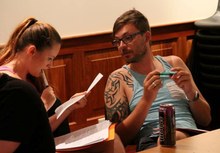
To follow their project see more here.
Upcoming Workshops
ROUNDTABLE DISCUSSION SERIES
(Unless otherwise advised, this will take place in Room D003-003, The Cairns Institute - between 1530 hrs and 1730 hrs on a Monday)
Members of the LCRC will give a semi-formal talk on an area of grammar. Participants will have the opportunity to give and receive feedback, and discuss the topic together. These are designed for students to be able to attend and be involved, and are planned to be held in person and via Zoom.
Attendance registration and Zoom details please contact: nathan.white1@jcu.edu.au.
_____________________________________________________________________________________________________
Time: Monday, 21 March 2022 at 3:30 pm
Robert L. Bradshaw, a PhD candidate at JCU, will discuss "Perspectives on orthography issues in Papua New Guinea".
An abstract and bio for R. Bradshaw can be accessed via this link.
_____________________________________________________________________________________________________
Time: Monday, 15 August 2022 at 3:30 pm
Abu Saleh Mohammad Rafi, an adjunct lecturer at JCU, will discuss “Blending translanguaging and CLIL: pedagogical benefits and ideological challenges”.
The discussion will be in D003 - 003 or via Zoom link.
Attendance registration and Zoom details please contact: nathan.white1@jcu.edu.au
An abstract and bio for Abu Saleh Mohammad Rafi can be accessed via this link.
_____________________________________________________________________________________________________
Time: Monday, 17 October 2022 at 1:00 pm
We would like to invite you to our next Roundtable Discussion meeting, Monday 17 October, where Dr Nathan M. White will be giving a talk on “Contact, Colonisation and Legacy: Language Interaction and Change in Southern Yokuts”.
We encourage all who can participate to attend this presentation. Please see the attached flyer for more information
Time: Monday 17 October at 1.00 pm (Brisbane, Australia time)
The colloquium will take place via Zoom:
https://jcu.zoom.us/j/81555314417?pwd=Qmk2UWNXMTdVbE9RSno5enpmZ21Udz09
______________________________________________________________________________
INTERNATIONAL COLLOQUIUM SERIES
(Unless otherwise advised, this will take place in Room D003-003, The Cairns Institute - between 1530 hrs and 1730 hrs on a Monday)
Speakers will be invited to give a formal talk on grammar or discourse from a language of interest. These are designed for students, staff and overseas adjunct faculty to attend, and are planned to be held in person and via Zoom.
_____________________________________________________________________________________________________
Monday 7 February 2022
Guest Speaker Theodore Nash – Mycenaean Orthography Through Space and Time
Theodore Nash has published on the development of writing systems in the Bronze Age Mediterranean and participates in the University of Cincinnati ‘Palace of Nestor’ excavations at Pylos in southern Greece.
Attendance registration and Zoom details please contact: neil.alexander.walker@gmail.com
_____________________________________________________________________________________________________
Monday 28 February 2022
Joe Blythe's research focuses on Indigenous Australian languages, including Murrinhpatha, Gija, and Jaru. He is the Associate Secretary for the Australian Linguistic Society.
Attendance registration and Zoom details please contact: neil.alexander.walker@gmail.com
_____________________________________________________________________________________________________
Monday 14 March 2022
Guest Speaker Knut Olawsky - Community Identity and Kununurra Kriol Orthography
Knut Olawsky works with Indigenous languages of Australia, including documentation work and language maintenance and revitalization efforts.
Attendance registration and Zoom details please contact: neil.alexander.walker@gmail.com
_____________________________________________________________________________________________________
Monday 11 April 2022
Daniel Hieber’s work focuses on Indigenous North American languages, especially the Chitimacha (Sitimaxa) language of Louisiana. He currently works with heritage speakers to revitalize the language.
Attendance registration and Zoom details please contact: neil.alexander.walker@gmail.com
_____________________________________________________________________________________________________
Monday 2 May 2022
Professor Fernando O. de Carvalho, is an expert on the historical linguistics of the languages of the Amazon and neighbouring regions.
Attendance registration and Zoom details please contact: neil.alexander.walker@gmail.com
_____________________________________________________________________________________________________
Monday 13 June 2022
Guest Speaker Dr Simon Overall - Reconstructing diversity: The Marañón river basin in North Peru
Dr Overall works with South American Indigenous languages and has published a comprehensive grammar of Aguaruna. Since 2013, he has also worked with speakers of Kandozi-Chapra, a language isolate in the north of Peru.
Attendance registration and Zoom details please contact: neil.alexander.walker@gmail.com
_____________________________________________________________________________________________________
Monday 4 July 2022
Guest Speaker Lameen Souag - Korandje: Between Linguistic Areas
Lameen Souag explores language change and linguistic history, especially in northern Africa. His fieldwork focuses mainly on Korandje (Songhay, Algeria) and Siwi (Berber, Egypt), two endangered languages whose long isolation from their nearest relatives has helped induce multiple layers of exceptionally intense contact effects.
Attendance registration and Zoom details please contact: neil.alexander.walker@gmail.com
_____________________________________________________________________________________________________
Monday 1 August 2022
Dr. Henry-Rodriguez researches the Chumashan languages of California. His recent project was a grammar and lexicon of the now extinct Purisimeño Chumash language of Central California.
Attendance registration and Zoom details please contact: neil.alexander.walker@gmail.com
_____________________________________________________________________________________________________
ROTATING WORKSHOP SERIES
(Unless otherwise advised, this will take place in Room D003-003, The Cairns Institute - between 1530 hrs and 1730 hrs on a Monday)
Members of the LCRC and Linguistic students will give updates on their ongoing work, present analytical problems or other discoveries of interest, and get ideas and feedback from colleagues. These are planned to be in-person gatherings only.
Attendance registration, please contact: nathan.white1@jcu.edu.au

